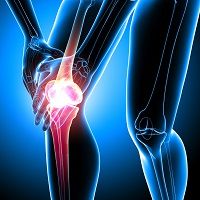Publication
Article
Internal Medicine World Report
Option of Arthroscopic Surgery for Degenerative Meniscal Tears
Author(s):
A recent study published in the Canadian Medical Association Journal looked at the steady progression of treatments for patients with degenerative muscular tears as well as the different efficiency levels between those patients who had surgery and those who took another treatment option.

It was not long ago that even a simple procedure like repairing a torn meniscus could leave a patient on the shelf for an extended period of time. These days the procedure can be done arthroscopically with a much shorter recovery time.
A recent study published in the Canadian Medical Association Journal looked at the steady progression of treatments for patients with degenerative muscular tears as well as the different efficiency levels between those patients who had surgery and those who took another treatment option. The authors noted more than 700 thousand procedures are annually performed in the United States alone, which is just a fraction of the more than 4 million procedures performed worldwide.
The “systemic review and meta-analysis,” looked at those who underwent arthroscopic surgery with mild to no osteoarthritis versus those who underwent “nonoperative or sham treatments.” The study was done, they said to look at the relationship between surgery, nonsurgical treatments and the differences in patients who might also have concurrent osteoarthritis. “Orthopedic surgeons are often challenged to determine the true cause of patients’ symptoms: the meniscal tear, osteoarthritis or a combination of both.”
The study authors looked at MEDLINE, Embase and the Cochrane databases for randomized controlled trials between 1946 and January 20, 2014. “We assessed risk of bias for all included studies and pooled outcomes using a random-effects model,” the authors noted. The outcomes, which included function and pain relief, were then divided into short-term and long-term results.
Looking at a total group of 85 patients the authors noted that while surgery has been a common treatment option it may not always be the best one.
“The pooled treatment effect of arthroscopic surgery did not show a significant or minimally important difference (MID) between treatment arms for long-term function outcomes (standardized mean difference [SMD] 0.07, 95% confidence interval [CI]-0.10 to 0.23),” the authors noted. “Short-term functional outcomes between groups were significant but did not exceed the threshold for MID (SMD 0.25, 95% CI 0.02 to 0.48.”
Data from the study also indicated there was not a “significant improvement,” in the patient’s pain scores in their short term recover period (MD -0.06, 95% CI -0.28 to 0.15.)
The authors noted only “moderate evidence,” that the meniscal debridement would help with degenerative tears of the meniscus. They also suggested a trial of “nonoperative management,” to see how those results would compare.






